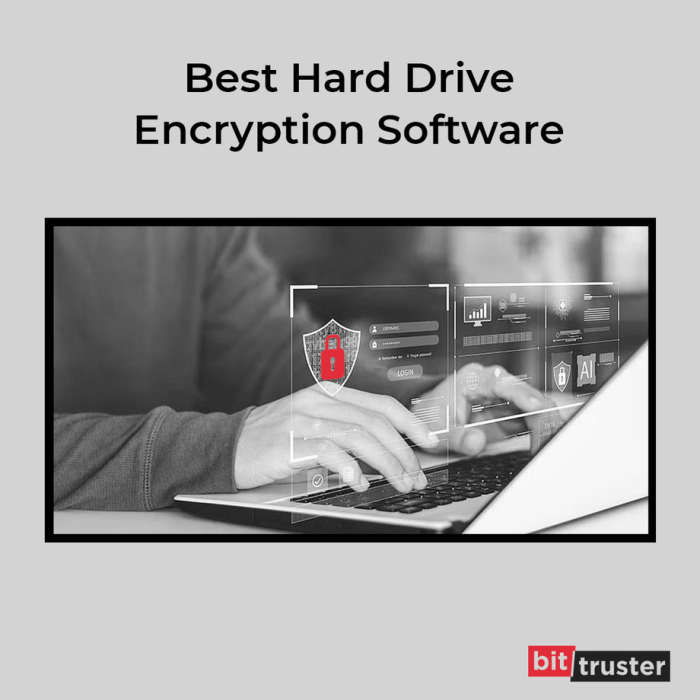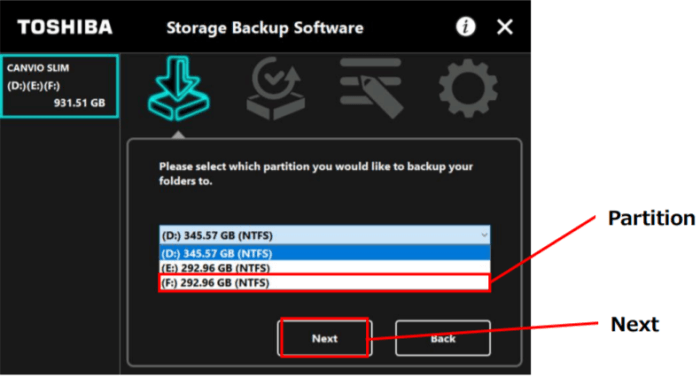In today’s digitally driven world, data security is paramount. Protecting sensitive information stored on your hard drive is crucial, and hard disk encryption software provides a robust solution. This comprehensive guide delves into the intricacies of hard disk encryption, exploring various software options, their features, security levels, and best practices for implementation. We’ll also address frequently asked questions to ensure you have a complete understanding of this essential security measure.
Understanding Hard Disk Encryption
Hard disk encryption, also known as full disk encryption (FDE), is a process that scrambles the data on your hard drive, rendering it unreadable without the correct decryption key. This safeguards your information from unauthorized access, whether through physical theft, malware attacks, or data breaches. The encryption process uses sophisticated algorithms to transform readable data into an unreadable cipher text.
Only with the correct decryption key can the original data be recovered.

Source: justpaste.it
Types of Hard Disk Encryption
Several methods exist for encrypting your hard drive, each with its strengths and weaknesses:
- Hardware-based encryption: This utilizes specialized chips embedded within the hard drive itself. It’s generally faster and more secure as the encryption/decryption happens at the hardware level, minimizing the load on the CPU. Examples include self-encrypting drives (SEDs).
- Software-based encryption: This uses software applications to encrypt the entire hard drive or specific partitions. It’s more flexible and often less expensive than hardware-based encryption but can impact system performance depending on the encryption algorithm and the processing power of your computer. BitLocker (Windows) and FileVault (macOS) are prime examples of software-based solutions.
- Pre-boot authentication: Some systems offer pre-boot authentication, requiring a password or other authentication method before the operating system even loads, thus preventing access to the encrypted drive before decryption can occur.
Choosing the Right Hard Disk Encryption Software
Selecting the appropriate software depends on your specific needs and technical expertise. Consider these factors:
- Operating System Compatibility: Ensure the software is compatible with your operating system (Windows, macOS, Linux).
- Encryption Algorithm: Stronger algorithms like AES-256 offer superior protection. Look for software supporting advanced encryption standards.
- Ease of Use: Some software offers intuitive interfaces, while others are more technically demanding. Choose a solution that aligns with your comfort level.
- Performance Impact: Encryption can impact system performance. Consider the trade-off between security and speed.
- Cost: Some software is free, while others are commercial products with varying pricing models.
- Key Management: Understand how the software manages encryption keys. Losing the key renders your data irretrievable.
Popular Hard Disk Encryption Software Options
Numerous hard disk encryption software options are available. Here are a few notable examples:
- BitLocker (Windows): Built-in to Windows Pro and Enterprise editions, BitLocker offers robust full disk encryption.
- FileVault (macOS): Apple’s built-in disk encryption solution for macOS, providing strong security.
- VeraCrypt: A free, open-source disk encryption software known for its strong security and cross-platform compatibility. It’s a popular choice for users seeking a robust and free alternative.
- LUKS (Linux Unified Key Setup): A standard for disk encryption on Linux systems, offering flexibility and security.
- DiskCryptor: Another strong contender in the open-source space, offering a variety of encryption algorithms and options.
Security Considerations and Best Practices, Hard disk encryption software
While encryption significantly enhances data security, remember these crucial points:
- Strong Passwords: Use long, complex passwords that are difficult to guess or crack. Consider using a password manager.
- Key Management: Securely store your encryption keys. Losing the key means losing access to your data.
- Regular Updates: Keep your encryption software updated to benefit from the latest security patches and bug fixes.
- Physical Security: Encryption protects against digital attacks, but physical theft remains a threat. Secure your computer and hard drives.
- Data Backup: Even with encryption, regular data backups are crucial. This safeguards your data against unforeseen circumstances such as hardware failure.
Frequently Asked Questions (FAQ)
- Q: Is hard disk encryption slow? A: The performance impact depends on the encryption algorithm, hardware, and software. Modern encryption methods generally have a minimal impact on system speed, though some slowdown is possible, especially on older hardware.
- Q: What happens if I forget my encryption password? A: You will lose access to your encrypted data. There is no way to recover it without the password. This is why strong password management is critical.
- Q: Can I encrypt only specific files or folders? A: While full disk encryption is common, some software allows encrypting individual files or folders. This offers a more granular approach to data protection.
- Q: Is hardware-based encryption better than software-based encryption? A: Hardware-based encryption is often considered more secure and faster because it offloads the encryption/decryption process to dedicated hardware. However, software-based solutions offer flexibility and are widely available.
- Q: Is encryption enough to protect my data? A: Encryption is a crucial layer of security, but it’s not a standalone solution. Combine it with strong passwords, regular backups, and other security practices for comprehensive protection.
Conclusion
Hard disk encryption is a fundamental aspect of data security. By carefully selecting and implementing appropriate software, and following best practices, you can significantly reduce the risk of data loss or unauthorized access. Remember that data security is an ongoing process requiring vigilance and proactive measures.
References
Call to Action
Protect your valuable data today! Choose the hard disk encryption software that best suits your needs and start encrypting your hard drive. Your peace of mind is worth it.
Helpful Answers
What are the different types of hard disk encryption?

Source: ubackup.com
Common types include full disk encryption (FDE), which encrypts the entire hard drive, and file-level encryption, which encrypts individual files or folders.
How does hard disk encryption impact system performance?
Encryption can slightly reduce system performance, but modern hardware and software minimize this impact. The extent of the performance hit varies depending on the encryption algorithm and the hardware used.
What happens if I lose my encryption key?
Losing your encryption key renders your data irretrievably lost. Robust key management practices, such as storing a backup copy in a secure location, are crucial.
Is hard disk encryption sufficient for complete data protection?
Hard disk encryption is a vital component of data protection, but it should be complemented by other security measures, such as strong passwords, regular software updates, and a robust security awareness policy.
